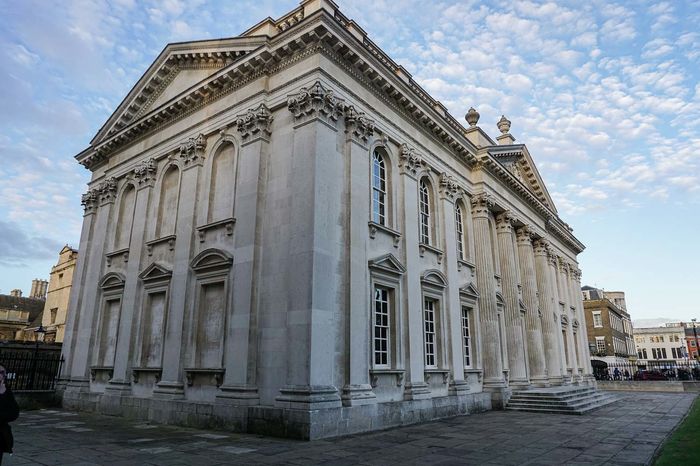The unspoken divides of the long vacation
We must be more considerate when discussing the long vacation, argues Hattie Holford-Smith

Our university has become drastically more inclusive in recent decades. But we still have a way to go. The language we use with one another often highlights cultural divides between us, or it betrays an ignorance we aren’t aware of. Some topics of conversation are harder to navigate than others, things like graduation, finances, and, of course, the long vacation. With empathy and mindfulness, however, we can do more to bridge these gaps in understanding.
After four years here, I still struggle when the long vacation is raised. Questions about my “break” cause a nagging, cringing sensation. I think of my friends working their gruelling summer jobs. I think of my own summer, desperately trying to find jobs I can do despite my disabilities, pleading with the Department of Work and Pensions to give me the disability benefit I so obviously need. I think of the rapidly dwindling bursary in my bank account.
“There’s no doubt that a Cambridge degree demands hard work, but for plenty of students, the vacations are harder”
The underlying assumption that Cambridge is the exhausting, life-sapping challenge of the year, with every week outside of term providing respite, doesn’t sit right. The centrality of the institution to every conversation, despite the fact we spend almost half the year out of study, confuses me. There’s no doubt that a Cambridge degree demands hard work, but for plenty of students, the vacations are harder. Many of us are working to fund our living costs or support relatives and dependents. We go home to the reality of poverty that we escape for six months of the year. Some go home to difficult situations, which make Cambridge terms feel like solace. Some of us have to work to afford the coming term, to stay away from abusive homes, and some have no other home to go back to.
Everyone has a different relationship with Cambridge. Perhaps it’s our first taste of independence, a community to belong to while we figure our lives out. It may be a lifelong dream or a short pit stop. For some it is a sanctuary, maybe a permanent home. For plenty, it is one part of a complex tapestry, of a life filled with various human highs and lows, experiences and responsibilities, which make Cambridge simply a back-drop for the rest of our lives. Regardless, it is a home to all for however long we stay here. Given the extensiveness of our differences, one would imagine our conversations to be sensitive and considered. One would imagine that we would instigate discussions with these potential variables in mind. I fear that most of us, at times, fall short.
When I bring this up to my friends, they instantly know what I mean. One gripes when asked where he’s “holidaying”, exasperated at the presumption that everyone can afford a vacation. My friends who are also care leavers or estranged share knowing looks between assuming questions like “It’ll be nice to have your parents cook for you, right?”. The ones with complex family situations stare at the floor when asked if it’s good to be home, wondering if the questioner really wants to hear the truth. The ones who work sigh when asked if they had “a nice rest”.
“The long vacation can make our divides feel more transparent. But the way we talk about it can make all the difference”
While I seethe over the state of the welfare system and bemoan late-stage capitalism, overall, I am grateful for Cambridge. This is not some bitter tale of woe. For all its faults, it’s a place full of incredible people and opportunities. We are surrounded by all sorts of people wonderfully different from ourselves and that is beautiful. What we could all do is to practise a little mindfulness when we speak. The feat of widening participation does not end with quotas. The endeavour ends only when Cambridge is truly a place for everyone. Despite the increase in working-class students, care leavers, and young carers, how many of us still feel isolated here? How many students from racialised communities still feel unseen or discriminated against? How many disabled students are still fighting an uphill battle? There are many ways in which our institution can feel unwelcoming. Many of these will require systematic change. What we can do, right now, though, at the very least, is attend to the linguistics.
When we ask our friends or peers about their ‘break’, or ‘home’, we should remember these words mean different things to different people. When we talk about Cambridge, we must understand that any of our fellow students might be juggling a lot more than tripos. The long vacation can make our divides feel more transparent. But the way we talk about it can make all the difference. Recognising our range of experiences, and being aware of and sympathetic to them, can make Cambridge feel more like home to all of us.
 News / Cambridge academics stand out in King’s 2026 Honours List2 January 2026
News / Cambridge academics stand out in King’s 2026 Honours List2 January 2026 Interviews / You don’t need to peak at Cambridge, says Robin Harding31 December 2025
Interviews / You don’t need to peak at Cambridge, says Robin Harding31 December 2025 Comment / What happened to men at Cambridge?31 December 2025
Comment / What happened to men at Cambridge?31 December 2025 Features / “It’s a momentary expression of rage”: reforming democracy from Cambridge4 January 2026
Features / “It’s a momentary expression of rage”: reforming democracy from Cambridge4 January 2026 News / AstraZeneca sues for £32 million over faulty construction at Cambridge Campus31 December 2025
News / AstraZeneca sues for £32 million over faulty construction at Cambridge Campus31 December 2025










